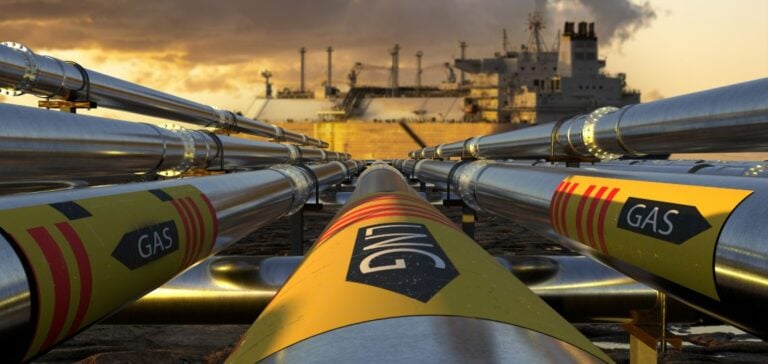The supply of natural gas has become a strategic tool and a major diplomatic challenge, especially in Europe, where Russia, historically a key partner, faces increasing scrutiny. The recent dispute between Gazprom, the Russian gas giant, and OMV, an Austrian energy company, underscores these complex issues.
A Contractual Dispute with Geopolitical Repercussions
The origin of this conflict lies in an arbitration ruling in favor of OMV, granting it €230 million for unfulfilled deliveries by Gazprom. In response, OMV reduced its payments, prompting Gazprom to suspend deliveries to Austria.
This situation has highlighted growing tensions between contractual obligations and legal rulings in an already strained sector. However, Russian gas flows through Ukraine to the European Union, at a stable volume of 42.4 million cubic meters per day, have not been interrupted. These flows, critical to several European countries, illustrate how gas can be redirected to maintain market stability while advancing Russian strategic interests.
Redistribution of Flows: Resilience Under Pressure
Before the suspension, approximately 17 million cubic meters of gas per day were directed to Austria, representing nearly 40% of flows via Ukraine. The redirection of these volumes to other countries, notably Slovakia, has avoided an immediate crisis.
However, this redistribution raises economic concerns. Gazprom suffers significant financial losses due to the suspension, while OMV will likely turn to alternative sources at potentially higher costs to meet its needs. This dynamic reflects not only the price volatility in the European gas market but also the European Union’s strategic dependence on its energy infrastructure.
Legal Complexity and Diplomatic Tensions
The Gazprom-OMV case highlights the legal challenges linked to international contracts in the energy sector. While OMV lawfully executed the arbitration decision, it triggered a suspension of deliveries, demonstrating how strict interpretations of rights can disrupt critical supply chains.
For the European Union, this incident underscores the need to strengthen its legal framework to prevent similar conflicts. It also emphasizes the tension between European companies leveraging legal tools and foreign suppliers’ ability to respond through commercial or political pressure.
Implications for European Energy Diplomacy
Since Russia’s invasion of Ukraine in 2022, the European Union has intensified efforts to diversify its supplies, increasing liquefied natural gas (LNG) imports from the United States, Qatar, and other partners. Despite this diversification, the disruption of deliveries to Austria caused a price hike, with TTF futures reaching €46 per megawatt-hour, a one-year high, underscoring the European market’s persistent vulnerability to disruptions in Russian supplies.
The growing uncertainty surrounding the transit agreement between Ukraine and Gazprom, set to expire on December 31, 2024, adds another layer of complexity. If this agreement is not renewed, it could permanently halt flows via Ukraine, further pressuring the European Union’s energy strategy.
Towards a More Resilient Strategy
This crisis underscores the urgency for the European Union to develop a sustainable and resilient energy strategy. This includes further diversifying energy sources, investing in infrastructure such as LNG terminals, and strengthening cooperation with strategic partners.
Moreover, the incident highlights the growing role of energy diplomacy as a tool for managing commercial and geopolitical disputes. By supporting multilateral mechanisms for dispute resolution, the European Union could prevent bilateral conflicts from further undermining its energy security.





















